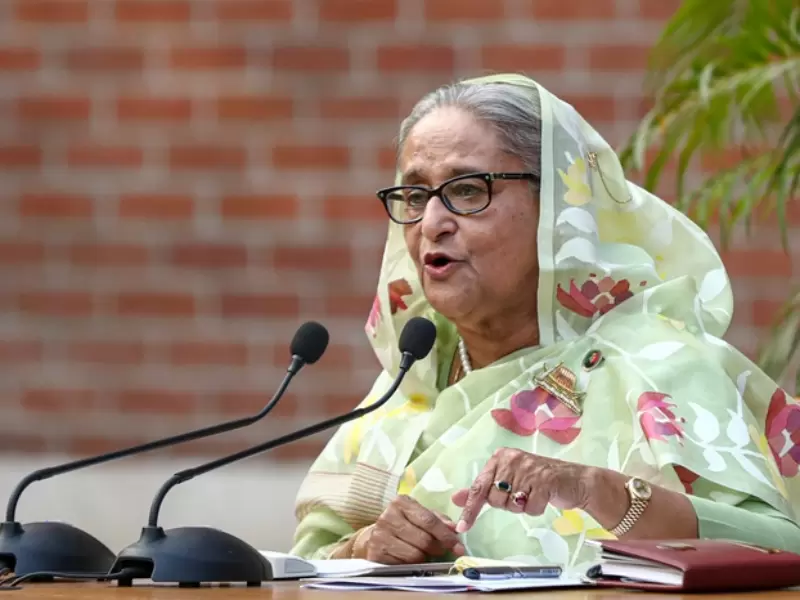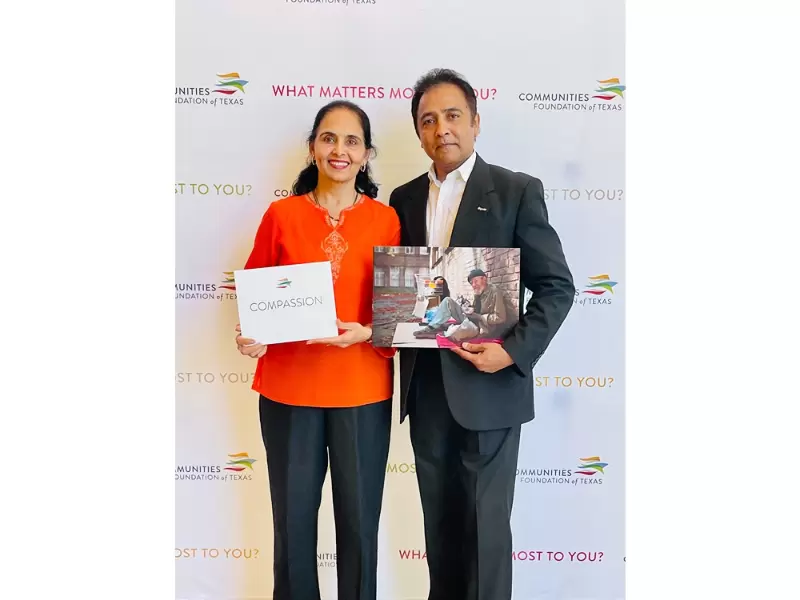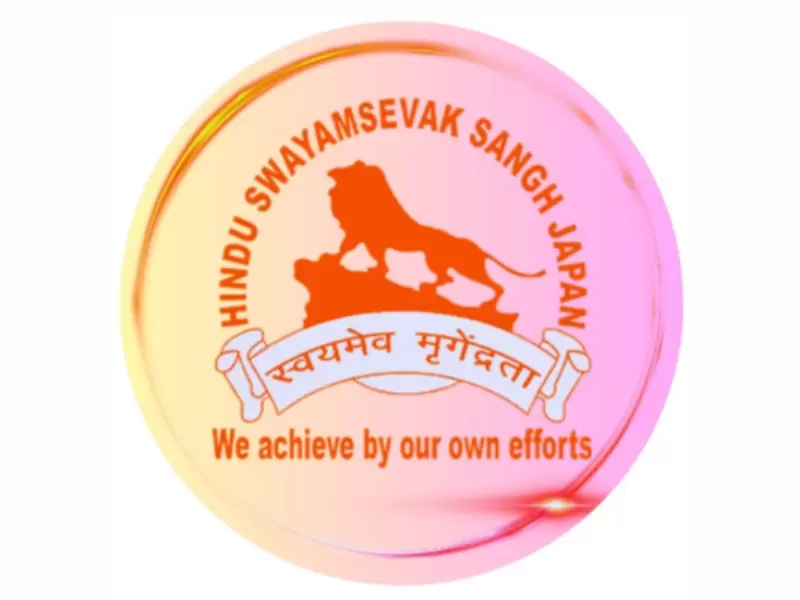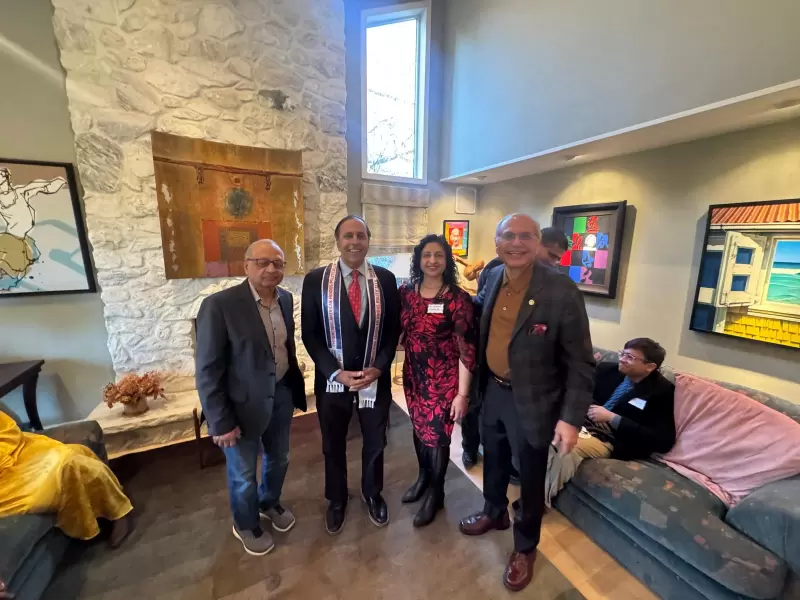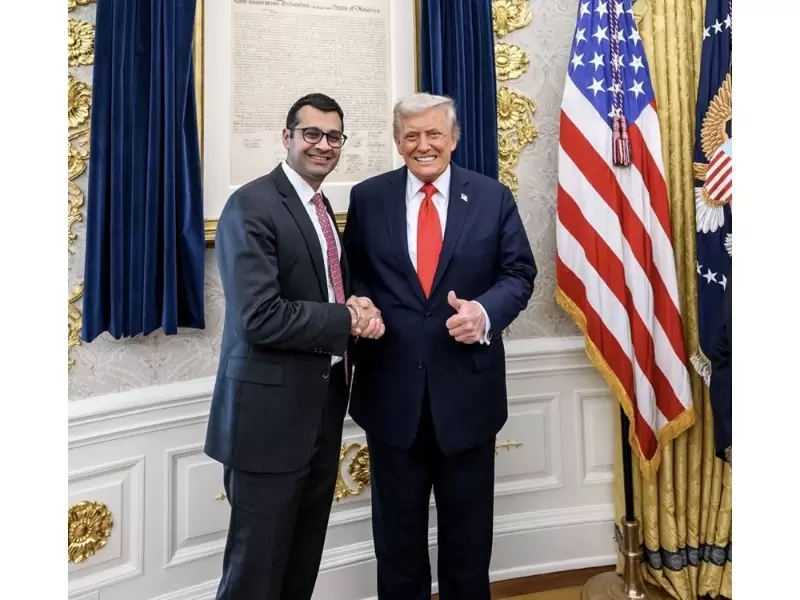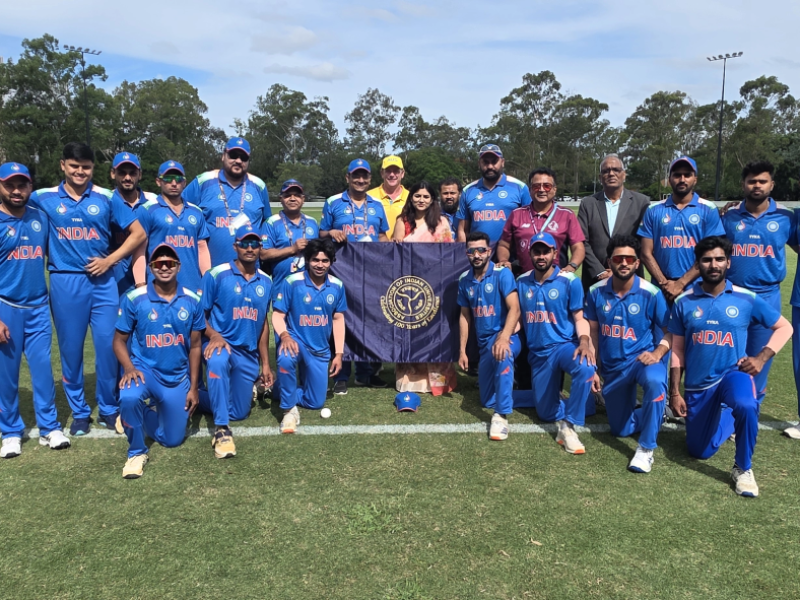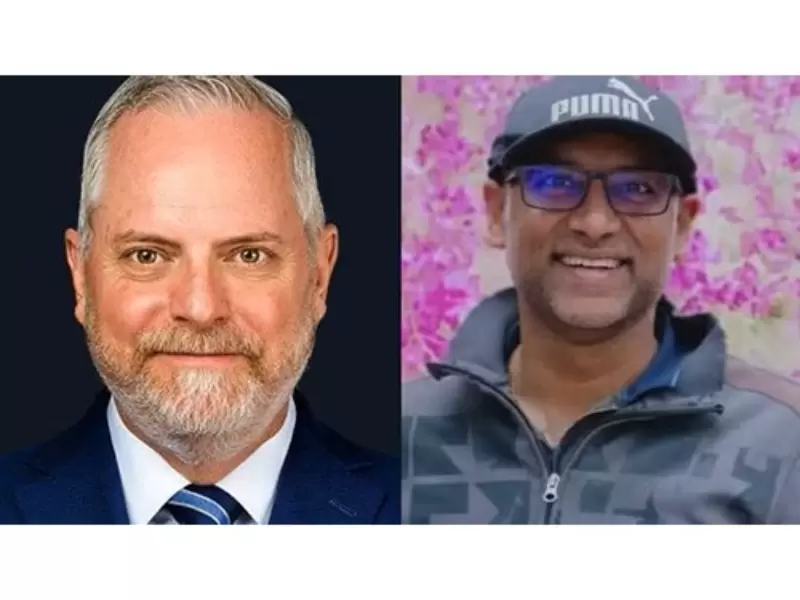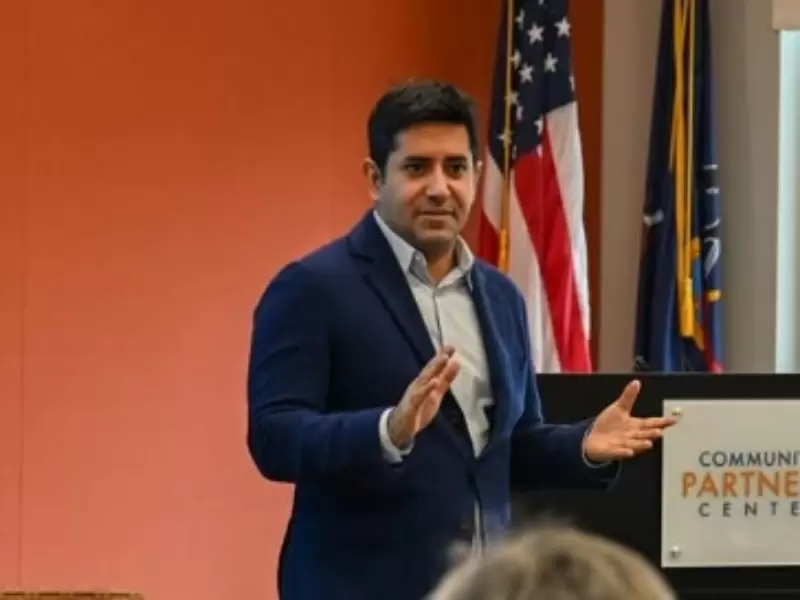ADVERTISEMENT
POP
See MoreCommunity
See More7th Vishwa Sangh Shibir inaugurated in Hyderabad
The event is held once every five years, as a forum for senior functionaries and volunteers associated with Hindu organizations worldwide to reconnect.
-
Interfaith advocates condemn treatment of Muslim women after Bihar chief minister’s actions at government event.
-
The nationwide initiative brings together Dharmic groups and volunteers to support food pantries and shelters across the U.S. during the...
-
Chicago Mayor Johnson said the city would continue to oppose antisemitism, reflecting the interfaith spirit of the event.
ADVERTISEMENT
Videos
View AllOpinion
See MorePeople
See MoreIndian-American diplomat Ricky Gill receives NSC award
Gill, 38, serves as Special Assistant to the U.S. President and Senior Director for South and Central Asia at the National Security Council.
-
The two Indian Americans will serve on the New York City board that sets annual rent increases for rent-stabilized apartments.
-
Ghosh will lead Monks’ North American data team and focus on expanding advanced data modeling across the company’s integrated marketing...
-
Abraham, a child-prodigy, is a student of Doctor of Music at Indiana University's Jacobs School of Music at the age...
ADVERTISEMENT
Entertainment
See More
Let us celebrate not just the films they made, but the joy, purity, and nostalgia they continue to bring to every generation of movie lovers.
-
Directed by Apoorva Lakhia, the film is set to release on April 17, 2026.
-
Following Talvar and Raazi, Daayra marks Meghna Gulzar’s third collaboration with Junglee Pictures.
-
The film draws on the cultural traditions of Himachal Pradesh’s...
-
A source close to the film shared, “After ‘The Family...
-
ADVERTISEMENT
Immigration
See More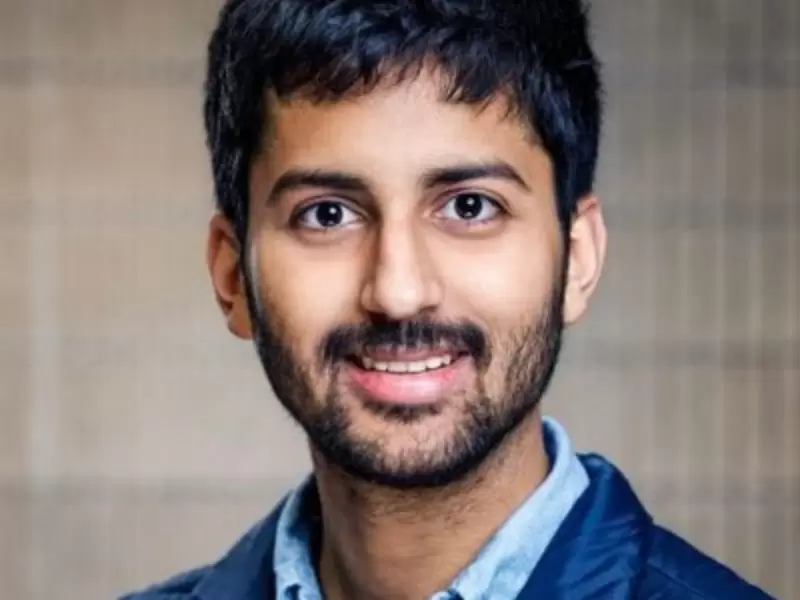
The post comes as the UK considers extending settlement timelines for most migrants to up to 10 years.
-
The embassy directed applicants to credible resources while warning against fake documents and unnecessary agent involvement.
-
US immigration authorities have increasingly relied on regulatory changes rather than legislation to address weaknesses in the system during stalled...
-
At the same time, a majority of Americans continue to...
-
The post comes as the UK considers extending settlement timelines...
Food
See More-
Instagram content creator Anushk Sharma shared a heartfelt review of the Michelin starred Indian restaurant in Chicago.
-
The menu draws from Lucknow’s narrow lanes, Delhi’s Mughal-era durbars, Hyderabad’s Nizami kitchens and the coastal food cultures of Tamil...
-
ADF Foods is a fourth-generation family-owned leader in gourmet frozen
-
Chef came to Dallas on a very short visit over...
-
The fast-casual Indian chain expands with a growing U.S. footprint...
-
The rebranded restaurant features team-themed visuals and a stadium-style atmosphere...
-
Attendees will receive a tour of the kitchen, observe operational...
-
Onset of illness occurred between Nov. 28 and 29, with...
SPORTS NEWS
See MoreDelhi Capitals now strengthens its overseas academy network, following its...
Kohli’s 16,000-run feat makes him only the second Indian player,...
Suryavanshi's century off 36 balls was the second-fastest hundred by...
Deepti became the joint-highest wicket-taker in women’s T20I history.
News
See More-
ADVERTISEMENT
Please enter something
- Asian Americans
- Biz
- Books
- Canada
- Community
- Culture
- Dating
- Diplomacy
- Diwali
- Editor picks
- Editorial
- Explainers
- Fashion
- Features
- Food
- Immigration
- India
- India Decides '24
- India Independence Day
- Letters to the Editor
- Life
- Maha Kumbh
- Movies+
- News
- Opinion
- People
- Ram Mandir
- Reviews
- Sports
- Spotlight
- Tech
- Travel n’ Diplomacy
- Trump 2.0
- UK Votes 2024
- US Elections 2024
- USA
- West Coast





